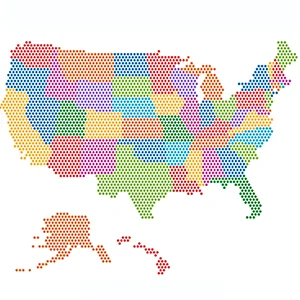第二期トランプ税制法の素案が現れた。その名前もOne Big Beautiful Bill Actである。先月5月下旬に僅差で下院議会を通過し、上院議会で審議されている。今回の法案で最も物議を醸しているのがIRC Section 899による「報復税(Retaliatory Tax)」だ。平ったく言うと、トランプ関税の課税版とも言える。すなわち米国が、自国に「不公平な課税(Unfair Foreign Tax)」をしていると認定した国に帰属する米国関連企業に対して追加税を課す、という内容である。米国進出日系企業にとっては、頭痛の種が増える。今回は、このトランプ税制法案なかで日系企業に大きなインパクトを与える可能性のあるSection 899「報復税」について考察する。
A. 背景
Section 899立案の背景としては、現在進められている国際的な課税枠組みに対するトランプ政権の反発だと報じられている。その国際的な課税枠組みとは「デジタルサービス税(DST)」や「軽課税所得ルール(UTPR)」等と呼ばれる、欧州やOECD諸国間で進められている新課税ルールである。これら新課税ルールは、国境を超えるオンライン市場におけるデジタル・サービスへの課税、国際企業グループの一部が低税率国に存在する場合における追加課税など、時代に即したタックス制度である。ヨーロッパ諸国の大半、カナダ、トルコ、インド、韓国、そして日本などは、こうした新課税ルールを導入しつつあるのが現状だ。米国企業のみをターゲットにした課税制度ではないものの、トランプ政権は、これを米国ハイテック企業中心にダメージを与えるものと捉えて、その「報復(Retaliate)」として今回Section 899を立案したと報じられている。
B. Section 899の骨子
Section 899「報復税」はどのような内容か。Section 899は、米国政府から見て「不公正な税制」を用いているDiscriminatory Foreign Country(DFC)外国・地域をまず定め、そのDFCに帰属する米国企業に対して、源泉徴収税、法人所得税、およびBEAT税(Base Erosion Anti-Abuse Tax)を追加課税すること等、提案している。メイン骨子は以下の通りである。
- 源泉所得税 米国から見た外国法人や非居住者が、米国から受領する配当、利息、ロイヤルティなどFDAP所得(Fixed, Determinable, Annual, or Periodic)を、追加課税する。具体的には、源泉税率の原則30%から毎年5%ずつ引き上げられ、50%で上限を達する。一方日系企業では、日米租税条約により源泉税率は原則30%から免税(0%)に引き下げられているケースがほとんどである。そうした租税条約適用のケースにおいても、0%からスタートし、毎年5%ずつ引き上げられる。2年目は10%、3年目は15%と引き上げられ、そして最大50%でキャップされる(つまり原則の源泉税率30%から20%加算される)。米国支店の法人所得
- 税 外国法人が米国にて支店(米国で外国法人として活動)を持っている場合、その米国支店の法人税率は毎年5%ずつ引き上げられ、最大20%上乗せされる。
- BEAT税 米国企業が、米国外の関連会社に対して利息やロイヤルティなど支払うことで課税所得を引き下げている場合(Base Erosion)、追加課税を課される制度である。今回Section 899は、BEAT税の適用対象を大幅に拡大(大企業のみをターゲットとする$500Million売上未満(3年間平均)の免除規定を今回外す)、より多くの米国進出企業が申告対象となる。
C. 不公平な税制 Unfair Foreign Taxとは
米国政府から見て不公平な税制を用いているDiscriminatory Foreign Countriesとは、Treasury Department(米国財務省)が四半期ごとに見直して判断、リストアップする。Section 899法案において、不公平な税制の具体例としては「デジタルサービス税(DST)」や「軽課税所得ルール(UTPR)」が列挙されている。日本国は、軽課税所得ルール(UTPR)を既に制度として導入済である。したがって、日本も、このDiscriminatory Foreign Countryのリストに含まれる可能性は十分ある。逆に言えば、Section 899から日系企業の適用を除外するためには、日本国がDiscriminatory Foreign Countryに認定されることを防ぐしかないと考える。そのための方法策としては、a)日本国政府が米国の言う「不公平な税制」つまり軽課税所得ルール(UTPR)を制度として撤回するか、あるいはb)軽課税所得ルールのなかで例外を設け米国企業又は米国人を適用除外とするか、が考えられる。いずれにしても、Section 899が、現法案に近い状態で上院議会を通過すれば、日本政府は、関税の時と同じように、再び米国政府と直接交渉を強いられる可能性が出てくる。
D. まとめ
Section 899を含むOne Big Beautiful Bill Actは現在上院議会で審議されている。共和党は7月中の可決を目指しており、10月頃までに立法化、2026年1月から適用したいと考えている。一方日本では、2026年4月から軽課税所得ルール(UTPR)を実際的に適用開始する予定だ。つまりこの日米両国の流れを見ると、一番早いパターンとしては、来年2026年4月頃より、米国日系企業はSection 899の適用を受けることになる可能性がある。ただし、上院議会では現在の素案に対する批判もある。Section 899の適用開始時期の先送りや、税率の引き上げ幅の縮小も議論されている。しかし修正されてもSection 899自体は上院を通過する可能性は高い。今から日系企業は、Section 899が適用された場合にどのように対応、どのように判断するのか、適宜状況を監視しつつ、対応策を準備する必要があろう。
<本ニュースレターは、米国における一般的な動向や情報をご案内する目的で配信している。具体的なご質問やアドバイス等は専門家に直接ご相談下さい。>
……………………………….
Section 899 “Retaliatory Tax” Provision Revealed
The draft of Trump’s new tax reform bill, titled the “One Big Beautiful Bill Act,” has been revealed. It narrowly passed the House of Representatives in late May and is currently under debate in the Senate. The most controversial aspect of the bill is the newly proposed IRC Section 899, often referred to as the “retaliatory tax”. In simple terms, it can be seen as the tax version of the Trump tariffs—an additional tax imposed on U.S. subsidiaries and related companies from countries the U.S. deems to be imposing “unfair foreign taxes.” This has the potential to significantly impact all foreign subsidiaries and investments in the U.S., and is likely to create additional challenges for Japanese companies in the US. With proper planning, however, these impacts may be mitigated. In this article, we examine the newly proposed Section 899—the so-called “retaliatory tax”—which forms a key part of Trump’s new international tax policy.
A. Background
Since taking office for his second term, President Trump’s administration has opposed the international tax framework developed by the OECD (Organization for Economic Cooperation and Development). This framework includes a series of new tax rules being implemented across Europe and other OECD member countries. Notable among them are the Digital Services Tax (DST) and the Untaxed Profits Rule (UTPR). These measures aim to curb tax avoidance by multinational corporations by increasing taxes on cross-border digital services and by targeting corporate groups with operations in low-tax jurisdictions. Many countries—including most of Europe, Canada, Turkey, India, South Korea, and Japan—are currently implementing these rules in their domestic tax systems. Although these initiatives are designed under the international community, the Trump administration reportedly views them as unfairly targeting large U.S. tech companies. As a countermeasure, Section 899 has been proposed to impose “retaliatory” taxation on companies from countries enforcing such rules.
B. Overview of Section 899
So, what exactly is this proposed Section 899? It begins by designating “Discriminatory Foreign Countries (DFCs)”—countries deemed by the U.S. government to be imposing unfair foreign taxes. Section 899 then authorizes the imposition of additional U.S. taxes on American subsidiaries and affiliates that are ultimately owned by entities from these DFCs. The key elements to the provision are as follows:
1. Withholding Tax on FDAP Income:
Foreign corporations and non-residents will face an increased withholding tax on FDAP (Fixed, Determinable, Annual, or Periodic) income—such as dividends, interest, and royalties—earned from U.S. sources. The default 30% withholding tax rate will increase by 5% annually, up to a maximum of 50%. For most Japanese companies, this rate is currently reduced to 0% under the Japan-U.S. tax treaty. However, under Section 899 provision, even treaty-reduced rates will gradually rise, starting from 0%:
•Year 1: 5% withholding rate
•Year 2: 10% withholding rate
•Year 3: 15% withholding rate
•…capped at a maximum of 50% (i.e., 20% above the standard 30%) withholding rate
2. Corporate Income Tax for U.S. Branches:
If a foreign corporation operates through a branch in the U.S., the branch’s corporate tax rate will also increase by 5% annually, up to an additional 20% total.
3. Super BEAT (Base Erosion and Anti-Abuse Tax):
The existing BEAT rules penalize U.S. subsidiaries and related companies of Foreign nationals, for reducing taxable income via payments (e.g., interest, royalties) to foreign affiliates. Section 899 significantly expands BEAT’s scope. For example, it removes the current exemption for smaller companies with average sales under $500 million (past three years average). This expanded version—nicknamed as “Super BEAT”—will subject many more companies to BEAT reporting and liabilities, marking a major escalation in anti-avoidance enforcement against foreign-affiliated companies.
C. What Are “Unfair Foreign Taxes”?
Under Section 899, the U.S. Treasury Department will review and publish a quarterly list of countries designated as Discriminatory Foreign Countries (DFCs). These are nations the U.S. deems to be imposing “Unfair Foreign Taxes” on U.S. entities. Examples of such taxes include the Digital Services Tax (DST) and the Untaxed Profits Rule (UTPR). Since Japan has already implemented the UTPR as part of its domestic tax code, it is likely that Japan will be included in the DFC list. To avoid having Japanese companies subject to Section 899, one of two actions would likely be required:
(a) The Japanese government repeals the UTPR; or
(b) The Japanese government introduces exemptions from the UTPR for U.S.-based companies or individuals.
If Section 899 passes the Senate in its current form, the Japanese government may once again find itself in bilateral negotiations with the U.S., much like the discussions around the Trump tariffs.
D. Summary
The One Big Beautiful Bill Act, which includes Section 899, is now under Senate review. Republicans aim to pass it by July, with enactment by October and implementation starting January 2026. Meanwhile, in Japan, the Untaxed Profits Rule (UTPR) is scheduled to come into full effect by April 2026. This means that, under the current timeline, Japanese-affiliated companies in the U.S. could be subject to Section 899 as early as April 2026. Discussions are ongoing about possibly delaying the effective date or moderating the rate increases. Nevertheless, Section 899 is still widely expected to pass. Japanese companies with U.S. operations should therefore closely monitor developments and begin preparing strategies to mitigate the potential impact of this major policy shift.
<This newsletter is distributed with the aim of introducing general trends and information in the United States. For specific questions or advice, please consult an expert directly.>









